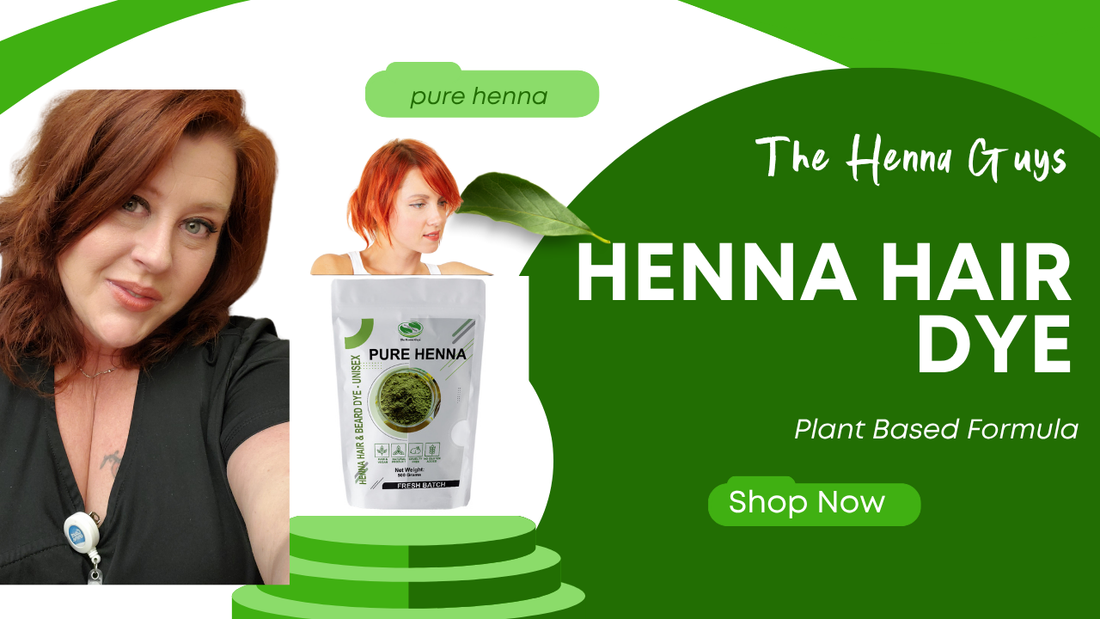Ever looked at that green henna powder and thought, "Seriously? This makes my hair red?" You're totally not the only one! It feels a bit like a trick, right? But guess what? It's actually some pretty cool plant science happening, not some kind of hair dye spell.
So, let's break down what's really going on when you mix up that henna goo and slather it on your hair. No fancy science jargon, promise!
The Big Deal Molecule: Lawsone – Henna's Tiny Color Artist
The real star of the henna show is this little thing called lawsone. It's like the natural color artist hiding inside the henna leaves (Lawsonia inermis plant). These plants love hot, dry places. We take their leaves, dry 'em out, and grind 'em into that green powder you see.
But the color magic? It's all about lawsone.

How Henna Actually Colors Your Hair: The Simple Version
Think of it like this:
Mix that henna powder with something little bit sour, like lemon juice (or even just water and let it sit). The lawsone wakes up and starts to come out. it's like squeezing juice from a fruit.
Now, when you put that henna hair dye paste on hair, this lawsone molecule is like, "Hey, I'm gonna stick to you!" Your hair is made of this stuff called keratin – it's a protein, like what builds your nails. The lawsone is tiny and can sneak into the outer layers of your hair and actually connect with that keratin. It's not just sitting on top or forcing its way in like those chemical dyes. It's a gentle, natural hug between the lawsone and your hair.
And that hug? That's what gives you those awesome copper, auburn, or reddish shades. What color you end up with depends a bit on the color your hair was to begin with.
Cool Bonus: Henna's Not Just a Color Job!
Here's a surprise for lots of people trying henna for the first time: it does more than just change the color! It's like a little treat for your hair.
People often say their hair feels stronger, super shiny, and even a bit thicker after using henna. That's because it kind of smooths down the outside of your hair, like closing tiny doors, which makes it reflect more light. It can also help with tangles and even calm down a grumpy scalp.
Basically, it's like a deep conditioner and hair color all in one go. Not bad, right?

Quick Henna Questions You Might Have:
Will henna work on hair that's already been dyed with chemicals?
Yep, it usually can, but doing a little test on a hidden strand of hair first is always a good idea. Some of those older chemical dyes can be a bit weird when they meet henna. If you're not sure what's been on your hair, a tiny test spot is your best bet.
How long does the color last?
Think around 4 to 6 weeks. It doesn't suddenly disappear; it just fades slowly over time. How often you wash your hair, how much sun it gets, and your hair type all play a small part in how long it stays vibrant.
Can henna cover gray hairs?
Totally! Actually, henna often gives gray hairs a really cool, bright copper color. If you want to go darker, like brown or black, you can team up henna with another natural dye called indigo in a two-step process.
Will henna dry out my hair?
Not usually, especially if you're using pure henna and mix it well. You can even add things like aloe vera or coconut milk to make it extra moisturizing. Just watch out for those pre-mixed "henna" things that sometimes have sneaky metallic salts in them – those can be drying or even damage your hair. Stick to the pure stuff!
Can I make the color darker or cooler?
Yep! You can mix henna with things like amla or coffee to nudge the color. And for those darker browns and blacks, indigo is your friend.
Wrapping it Up:
Okay, so henna might take a little more time than just grabbing a box of dye. But when you think about it, you're using something straight from a plant to get beautiful color and healthier hair, without all those harsh chemicals. That green powder really does have a cool science story to tell!

